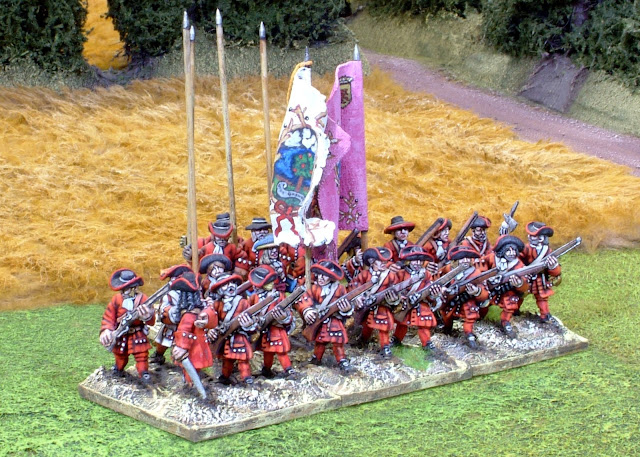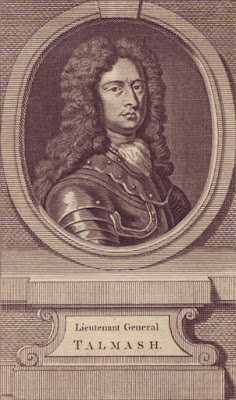This piece was first run in Wargames Illustrated in 2016. I thought it a solid multi-parter to run on the blog whilst I am holidaying.
Contemporaneous notoriety
The disastrous attack at Camaret Bay on June 18th
1694 was a very English tragedy. From a distance of 322 years it is easy to
understand that a relatively minor operation which went badly wrong and
resulted in the death of a largely forgotten general is of little if any
significance. Although few may have been aware of the Battle of Camaret Bay or
Thomas Tollemache before reading this piece it is likely that most if not all
readers have heard of John Churchill and more than a few of King James II and
Sébastien Le Prestre de Vauban, Seignur de Vauban, Marshal of France. Each is
linked directly or indirectly to a disastrous military adventure which in its
own way will have shaped subsequent momentous historical events.
If we hopped into the DeLorean and set the dial to April
1694 the names of our protagonists would be as ubiquitous as Donald Trump,
Angela Merkel and Adele are to us today. In particular during this the fifth
full year of the reign of William and Mary, a military A- lister would mostly
definitely have been Lieutenant General Thomas Tollemache (sometimes Talmash or
Tolmach). Aged 43, veteran of Tangier, Colonel of the Coldstream Guards,
Brigadier General of Foot in Ireland, distinguished at Walcourt in ’89, Aughrim
in ’91, Steenkirke in ’92 and Neerwinden in ’93.
 |
| English infantry - Camaret was an 'All England' affair |
He was the rapidly rising star
in the English army and perhaps destined for the top job. Known as a bit of a
hothead very like another of his ascendant brother officers - John Cutts the
warrior poet, aged 33 who was also a significant player in the Camaret
escapade.
Tollemache was a contemporary and many would say the pre-eminent
rival of yet another famous officer of the day, Lieutenant General John
Churchill, Earl of Marlborough aged 44, and at this point in time out of favour
with the monarchy and on gardening leave in Oxfordshire having been in the gossip
magazines for all the wrong reasons.
Disunited together
The command structure and distribution of power amongst King
William’s generals was a turbulent and seething broth of jealously, intrigue
and secret pacts. The King instinctively trusted his Dutch entourage more than
the English establishment. The most powerful in England had made possible his
ascension to the throne but his political survival instincts compelled him to
doubt their loyalty and trustworthiness. What must have appeared as hugely
disrespectful ingratitude to many in England was viewed differently by the
joint monarchs and their advisors.
 |
| Cut out of the Camaret equation - not a Dutchman in sight! Regiment Waldeck- Pyrmont. |
A lingering suspicion that these king-makers
would once more turn towards James Stuart resulted in many falling foul of
court intrigue. John Churchill notwithstanding his military talent was one
such. After a promising start in 1688 and military successes at Walcourt in
1689 followed by a textbook operation at Cork and Kinsale in 1690, the
politically adroit Marlborough played a couple of very bad hands and found
himself well and truly locked out of the game at the highest level and by the
King and Queen personally.
 |
| Steenkirke was a defeat but many English officers emerged from the cauldron with enhanced repuatations for bravery. |
Tollemache was getting lots of the airtime that his
rival probably had planned to occupy which can’t have made for an easy
relationship between the two generals.
Success in Ireland brought riches and fame to
many yet the strategic direction and ideas championed by several senior English
officers were not aligned with those of Dutch and other Allied commanders as
the Nine Years War entered its sixth year. As a consequence the planned attack on
Brest became predominantly an English operation.

